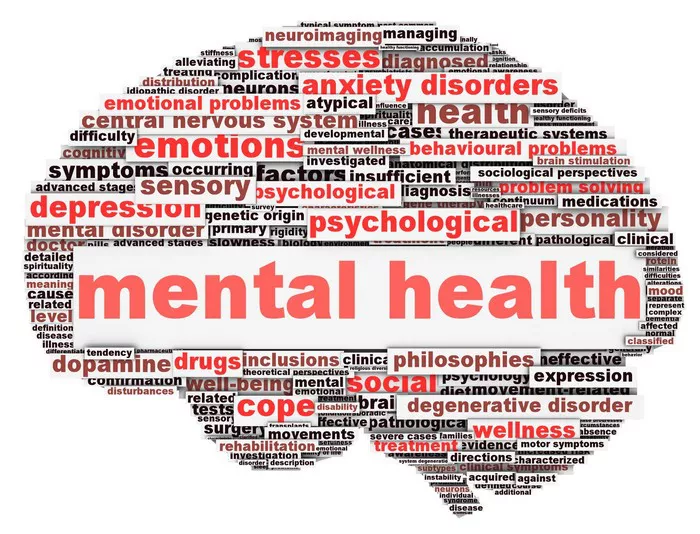Mental illness is a term that encompasses a wide range of psychological disorders that affect mood, thinking, and behavior. From anxiety and depression to schizophrenia and bipolar disorder, these conditions can significantly impact an individual’s daily life, relationships, and overall well-being. Despite the prevalence of mental health issues, stigma and misunderstanding often surround them, leading to inadequate support and treatment for those affected. This article aims to provide a comprehensive overview of mental illness, including its definitions, types, causes, symptoms, and treatment options.
Defining Mental Illnes
Mental illness is characterized by a significant disturbance in an individual’s thoughts, emotions, or behavior, which can impair functioning in various aspects of life. The American Psychiatric Association (APA) defines mental disorders as “syndromes characterized by clinically significant disturbances in an individual’s cognition, emotion regulation, or behavior that reflects a dysfunction in the psychological, biological, or developmental processes underlying mental functioning.” These disorders can manifest in various ways, impacting a person’s ability to cope with daily stressors, maintain relationships, and perform at work or school.
Types of Mental Illness
Mental illnesses are categorized into several broad categories, each encompassing various specific disorders. Some of the most common categories include:
Anxiety Disorders: These include generalized anxiety disorder (GAD), panic disorder, social anxiety disorder, and specific phobias. Individuals with anxiety disorders often experience excessive fear or worry that can interfere with daily activities.
Mood Disorders: This category includes major depressive disorder, bipolar disorder, and dysthymia. Mood disorders primarily affect an individual’s emotional state, leading to prolonged periods of depression or elevated mood.
Psychotic Disorders: Schizophrenia is the most well-known psychotic disorder, characterized by distorted thinking, perceptions, and emotional responsiveness. Individuals may experience hallucinations or delusions that significantly impact their grasp on reality.
Personality Disorders: These include borderline personality disorder, narcissistic personality disorder, and antisocial personality disorder. Personality disorders involve enduring patterns of behavior, cognition, and inner experience that deviate from cultural expectations and cause distress or impairment.
Eating Disorders: Conditions such as anorexia nervosa, bulimia nervosa, and binge-eating disorder fall under this category. Eating disorders involve severe disturbances in eating behaviors and body image.
Obsessive-Compulsive and Related Disorders: These include obsessive-compulsive disorder (OCD) and body dysmorphic disorder. Individuals with OCD experience intrusive thoughts (obsessions) and engage in repetitive behaviors (compulsions) to alleviate anxiety.
Post-Traumatic Stress Disorder (PTSD): PTSD can develop after experiencing or witnessing a traumatic event. Symptoms may include flashbacks, nightmares, and severe anxiety.
Causes of Mental Illness
Mental illness is complex and multifaceted, with various factors contributing to its development. These factors can be broadly categorized into biological, psychological, and environmental influences:
Biological Factors: Genetics play a significant role in mental health. Family history of mental illness can increase the risk of developing similar conditions. Neurotransmitter imbalances, hormonal changes, and structural abnormalities in the brain can also contribute to mental health disorders.
Psychological Factors: Individual psychological makeup, including personality traits, coping mechanisms, and cognitive patterns, can influence susceptibility to mental illness. Traumatic experiences, such as abuse or neglect, can also have lasting effects on mental health.
Environmental Factors: External factors such as socioeconomic status, cultural influences, and exposure to stressors (e.g., loss of a loved one, job loss, or chronic illness) can trigger or exacerbate mental health issues. Additionally, substance abuse can significantly impact mental health.
Symptoms of Mental Illness
Symptoms of mental illness can vary widely depending on the specific disorder and the individual. However, some common indicators include:
- Persistent sadness or low mood
- Excessive worry or anxiety
- Changes in appetite or weight
- Sleep disturbances (insomnia or hypersomnia)
- Withdrawal from social activities
- Difficulty concentrating or making decisions
- Feelings of hopelessness or worthlessness
- Irritability or mood swings
- Substance abuse
- Hallucinations or delusions (in severe cases)
Recognizing these symptoms early can be crucial for effective intervention and treatment.
Treatment Options for Mental Illness
Treatment for mental illness is often multifaceted and tailored to the individual’s needs. Common approaches include:
Psychotherapy: Also known as talk therapy, psychotherapy involves working with a trained mental health professional to explore thoughts, feelings, and behaviors. Various therapeutic modalities exist, including cognitive-behavioral therapy (CBT), dialectical behavior therapy (DBT), and psychodynamic therapy.
Medication: Psychotropic medications can help manage symptoms of mental illness. Antidepressants, antipsychotics, mood stabilizers, and anti-anxiety medications are commonly prescribed, depending on the specific disorder.
Lifestyle Changes: Incorporating healthy lifestyle habits can significantly impact mental health. Regular exercise, a balanced diet, adequate sleep, and stress-reduction techniques (such as mindfulness and meditation) can enhance overall well-being.
Support Groups: Peer support can be invaluable for individuals facing mental health challenges. Support groups provide a space for individuals to share experiences, gain insights, and foster a sense of community.
Holistic Approaches: Some individuals may benefit from complementary therapies, such as yoga, acupuncture, or art therapy, which can promote relaxation and emotional expression.
The Importance of Seeking Help
Despite the prevalence of mental illness, many individuals hesitate to seek help due to stigma, fear, or lack of awareness. It is crucial to understand that mental health is just as important as physical health, and seeking help is a sign of strength, not weakness. Early intervention can lead to better outcomes, allowing individuals to lead fulfilling lives.
Conclusion
Mental illness is a complex and often misunderstood aspect of human health. By increasing awareness, reducing stigma, and promoting understanding, we can create a more supportive environment for those affected by mental health disorders. It is essential to recognize the signs of mental illness, understand its causes, and seek appropriate treatment. As we continue to learn more about the intricacies of the human mind, we can foster a society that prioritizes mental health and supports those in need. Remember, mental health matters, and help is always available.
Related Topics:


